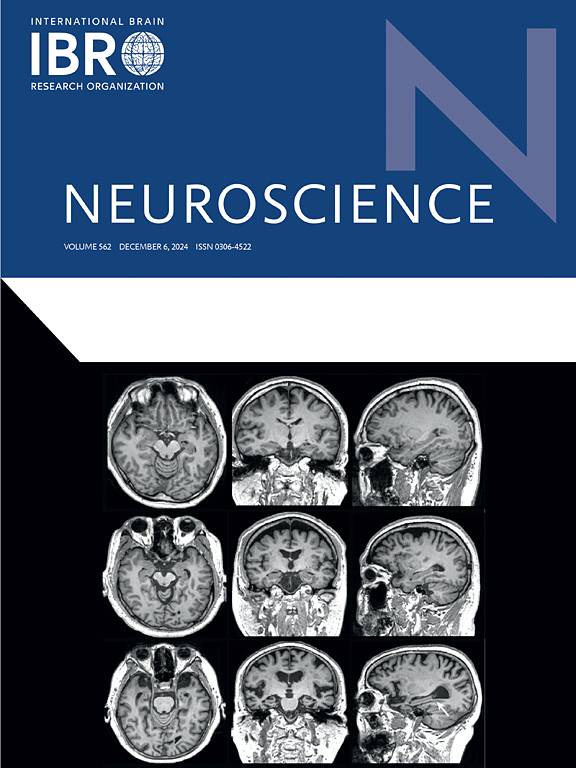针刺治疗抑郁症:突触可塑性调节机制
IF 2.8
3区 医学
Q2 NEUROSCIENCES
引用次数: 0
摘要
抑郁症是一种严重的异质性精神疾病,与其他精神和躯体疾病高度共病。它给个人和社会带来了巨大的医疗负担。目前,单靶点抗抑郁药的疗效不理想,副作用显著。由于与抗抑郁药物相比,针灸的不良反应率低,因此一直被认为是一种实用有效的治疗抑郁症的方法。目前,多项研究表明,针灸治疗抑郁症主要涉及多种治疗机制,包括调节特定基因表达、神经肽和神经递质释放,增加神经营养因子的表达,抑制下丘脑-垂体-肾上腺(HPA)轴的高活性,减轻炎症反应,恢复肠道菌群平衡。这些治疗作用涉及关键信号通路的调节,包括camp响应元件结合蛋白(CREB)信号通路、丝裂原活化蛋白激酶(MAPK)信号通路、雷帕霉素机制靶点(mTOR)信号通路和toll样受体(TLR)信号通路。值得注意的是,抑郁症相关的分子机制和信号通路失调与神经和突触可塑性受损密切相关。针刺协同调节神经-免疫-微生物多维网络,整合CREB等关键通路间的串扰,从而系统性地恢复突触可塑性。这种多维综合机制可能是其优于单靶点抗抑郁药的治疗优势的基础。本综述旨在阐明针灸如何通过纠正抑郁症相关的全身功能障碍和信号通路异常来恢复大脑突触可塑性,这将促进我们对其在抑郁症治疗中的调节潜力的理解,并为制定精确的治疗策略提供信息。本文章由计算机程序翻译,如有差异,请以英文原文为准。

Investigating acupuncture therapy in depression: mechanisms of synaptic plasticity regulation
Depression is a severe heterogeneous mental illness that is highly co-morbid with other mental and somatic disorders. It poses a significant healthcare burden on both individuals and society. Currently, the use of single-target antidepressants exhibits suboptimal efficacy with significant adverse effects. Acupuncture has been advocated as a practical and effective treatment for depression, due to its low adverse effects rate compared to antidepressant medication. Currently, several studies have shown that acupuncture treatment for depression primarily involves multiple therapeutic mechanisms, including the regulation of specific gene expression, neuropeptide and neurotransmitter release, increasing the expression of neurotrophic factors, suppressing hyperactivity of the hypothalamic–pituitary–adrenal (HPA) axis, attenuating inflammatory responses, and restoring gut microbiota balance. These therapeutic effects involve the regulation of critical signaling pathways, including the cAMP-responsive element binding protein (CREB) signaling pathway, mitogen-activated protein kinases (MAPK) signaling pathway, mechanistic target of rapamycin (mTOR) signaling pathway, and toll-like receptors (TLR) signaling pathway. Notably, depression-associated molecular mechanisms and signaling pathway dysregulations are closely linked to impaired neural and synaptic plasticity. Acupuncture synergistically modulates the neuro-immune-microbiome multidimensional network and integrates crosstalk among key pathways such as CREB, thereby systemically restoring synaptic plasticity. This multi-dimensional integrative mechanism likely underlies its therapeutic superiority over single-target antidepressants. This review aims to elucidate how acupuncture restores cerebral synaptic plasticity by rectifying depression-related systemic dysfunctions and signaling pathway abnormalities, which will advance our understanding of its regulatory potential in depression treatment and inform the development of precision therapeutic strategies.
求助全文
通过发布文献求助,成功后即可免费获取论文全文。
去求助
来源期刊

Neuroscience
医学-神经科学
CiteScore
6.20
自引率
0.00%
发文量
394
审稿时长
52 days
期刊介绍:
Neuroscience publishes papers describing the results of original research on any aspect of the scientific study of the nervous system. Any paper, however short, will be considered for publication provided that it reports significant, new and carefully confirmed findings with full experimental details.
 求助内容:
求助内容: 应助结果提醒方式:
应助结果提醒方式:


